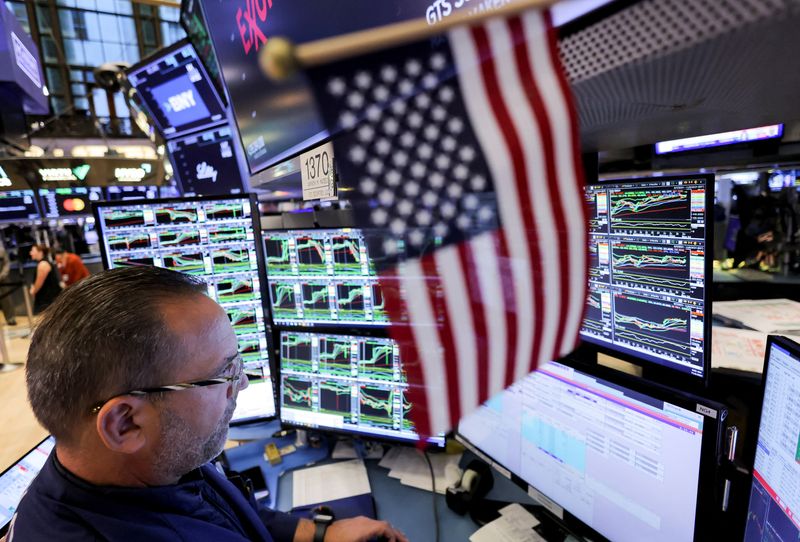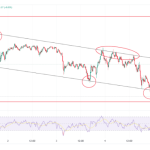
By Milana Vinn, Echo Wang and Nupur Anand
NEW YORK (Reuters) – Wall Street executives by and large are looking forward to business-friendly regulations as they analyze the implications of a second Donald Trump presidency, while some bankers were immediately tasked with discussing potential deals.
Trump’s return to power is likely to significantly ease some of the regulatory pressures industries have seen under the Biden administration, executives across banks and private equity said.
Smaller government, broad deregulation as well as tax breaks for corporations and the wealthy are widely expected. In particular, a softer stance on antitrust and less regulation in areas such as banking and cryptocurrencies could boost corporate profits and spur deal flow, they said.
“He is pro-business and anti-regulation,” said Euan Rellie, co-founder and managing partner of investment bank BDA Partners. “His instincts are to cut taxes. All of that will help the M&A market.”
“So long as he governs with moderation and not with chaos, the markets will welcome him,” said Rellie.
That, some of the executives said, however, was not a given, and tempered the optimism.
Some bankers worried about how to navigate unpredictable shifts in government policy, the impact of trade tariffs, a potentially perilous fiscal path that adds trillions of dollars to the national debt as well as about the potential tightening of visa programmes.
For now, though, the reaction was euphoric. As U.S. stocks rallied sharply, one equity capital markets banker who declined to be named said his colleagues had got fresh mandates Wednesday morning as well as an opportunity to pitch for an initial public offering. The message was, “let’s get the ball rolling,” the banker said.
An investment banker who works at a global firm in New York also said that his firm had an internal call to discuss deals, including possibly revisiting some transactions that may have not passed regulatory scrutiny under Lina Khan’s Federal Trade Commission in the Biden administration.
MORE BUSINESS
A more lenient approach to antitrust issues could boost dealmaking in many sectors. Two sources with knowledge of the media industry said the sector was in for a period of consolidation over the next two years.
Greg Hertrich, head of U.S. depository strategies at Nomura, said the banking industry could see more mergers, too. “The current number of 4,700 banks in the U.S. may be reduced to around 2,500 faster,” he said.
Large financial deals will have more chance of being greenlighted. Shares of payments firms Capital One (NYSE:COF) and Discover Financial Services (NYSE:DFS), awaiting approval of a $35.3 billion deal, surged.
“It is expected that the Trump administration will be more open to sensible M&As than many believe has been the case under the Biden administration,” said Gene Ludwig, a former top bank regulator who now advises financial institutions as CEO of Ludwig Advisors.
For banks, one of the biggest questions now is how stringent new Basel capital standards are going to be.
Ed Mills, an analyst at Raymond (NS:RYMD) James, said the turnover of regulators as the new administration comes in will “stall the bank regulatory super cycle that has existed over the last couple of years.”
“We are unlikely to see any major bank regulation come out and all of this paints a very favorable picture for the banks,” said Mills.
MANY WORRIES
Not everyone was celebrating, however. A lawyer who works with renewable energy companies said he’d been on the phone with despondent clients all day. They were all trying to reach local Republican politicians in districts where they have planned projects, seeking assurances that tax credits and incentives under Biden’s push for green energy would continue.
At one Wall Street firm, a meeting included conversation about the risk of deficits rising under a Trump administration, one source said. One estimate sees his policies adding $7.5 trillion to deficits over 10 years.
The hope among the participants was Trump’s aides would encourage him not to go to extremes with tariffs and tax cuts, said the source.
Other concerns hit more on a personal level, such as safeguarding non-U.S. staff. In Trump’s first term, he took steps to tighten access to some visa programs, including a suspension of many work visas during the COVID pandemic.
A private equity investor in New York said one issue that came up on Wednesday was questions from international employees on H-1B visas about whether they would face difficulties renewing their visas and how their employer could support them.







